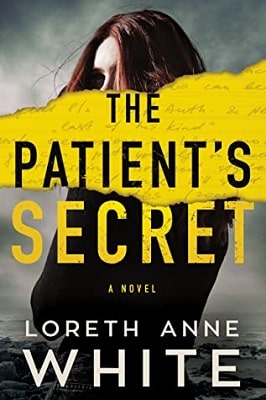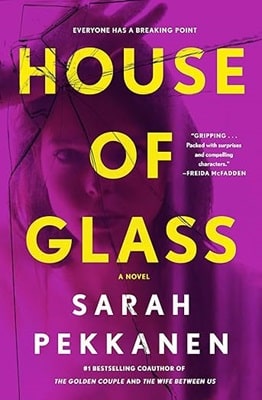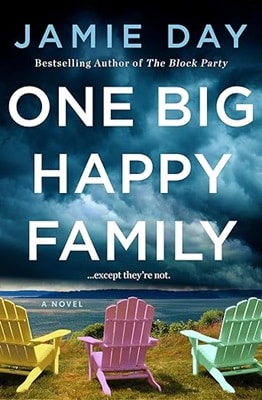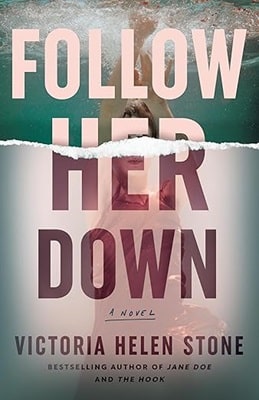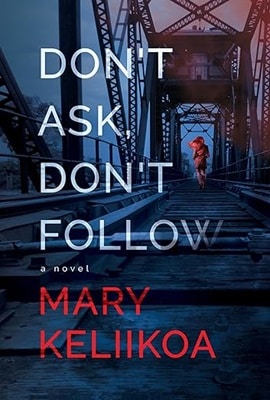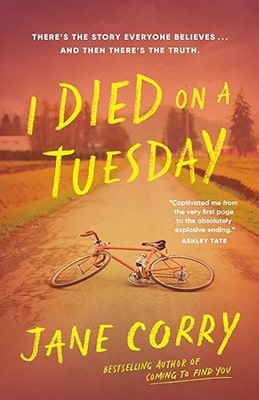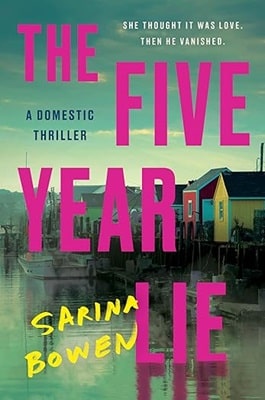
Q&A
Loreth Anne White is an Amazon Charts and Washington Post bestselling author of thrillers, mysteries, and suspense. With well over 2 million books sold around the world, she is a three-time RITA finalist, an overall Daphne du Maurier Award winner, Arthur Ellis finalist, and winner of multiple industry awards.
A recovering journalist who has worked in South Africa and Canada, she now calls Canada home. She resides in the Pacific Northwest, dividing time between Victoria on Vancouver Island, the ski resort of Whistler, and a rustic lakeside cabin in the Cariboo. When she’s not writing or dreaming up plots, you’ll find her on the lakes, in the ocean, or on the trails with her dog where she tries—unsuccessfully—to avoid bears.
Interview by Sandra Hoover
Q. Welcome, Loreth. Congratulations on the release of The Patient’s Secret, another stunning 5-star story based on a true crime. Talk to us about this book and how it came about — what touched and inspired you about this specific crime to the point you felt compelled to incorporate it into your plot line in The Patient’s Secret?
Loreth: Thank you for the welcome, and for having me here.
Both The Patient’s Secret and my previous release, Beneath Devil’s Bridge, have backstories that are closely based on real and horrendous murders that occurred in my part of the world. These two violent events affected me deeply as a mother—they occurred when I was covering the crime beat for my local newspaper, and at a time that my own daughters were of similar ages to the kids involved. These crimes forced me to ask questions of myself as a parent, and of my community, and they have lived rent-free in my head ever since. Perhaps incorporating these incidents into my fiction is a way of finally processing them, trying to understand them—which, I think, is what crime fiction does. Or perhaps using real events as a backdrop to my fiction is my way of underscoring (for myself) that, yes, while some of us lean to crime fic for grand escapism and vicarious thrills, in reality the ripple effects of these horrifically violent events are raw and rough and deeply complicated, and even once a perpetrator is charged and sentenced, ‘closure’ can remain elusive.
Q. Which brings us to the next question: The Patient’s Secret is a highly entertaining story (as are all of your books), but also deeply thought-provoking. Do you feel it’s important for stories to not only entertain, but also inspire deeper thought and/or questions? Is this something you consciously do with each book?
Loreth: Good question! You’re making me dig deeper into my own creative process and psyche. I confess that given current affairs—where we find ourselves so bitterly divided on issues of ‘right’ vs ‘wrong’; on questions around policing and justice and prisons/punishment; and around issues of rage, vigilantism, revenge, gun violence—that trying to write a domestic suspense felt a bit … trite. I struggled with feeling shallow. I asked myself if what I was doing was worthy enough. Or meaningful enough. But I kept returning to the entertainment and escapist value. I get such wonderful escape from current affairs by reading about murders and watching crime shows (as counterintuitive as that might seem). I love the genre tropes. I adore it when authors deliver on my expectations for the genre while also bringing something fresh to the table. I love when the heroine restores order to an upturned world. So I decided that while I still want to deliver on those genre tropes promised by psychological suspense—devious, entertaining, twisty fiction with a puzzle and clues and misdirection—I also wanted to give my stories a dark little heart of gravitas. And using true crime helped me do that. The real crimes served as a reminder to me that yes, this is all fun, but it has a bitter core, too. It has real life consequences. And perhaps that can provoke deeper questions about justice, retribution, and community complicity, as well as entertain.
As I told my editor—the wonderful Alison Dasho—I call it ‘poison popcorn’ J. Or popcorn delivery. Think of it as shoveling caramel corn into your mouth and not really focusing on the eating, just enjoying, then suddenly hitting a bitter little centre, and going, ‘Oh?’. I like that idea of shock.
Q. So do you think creators of crime fiction have a responsibility in the kinds of stories they choose to tell?
Loreth: That’s an interesting debate. I suppose this question goes to the heart of why we find crime (murder; violence against the vulnerable; vengeful, jealous women doing harm, gaslighting others) fun, entertaining, escapist in the first place. I’ve always leaned toward a Jungian view–-that crime tales are a way for us humans to haul our Shadows and Monsters out of the basement of our collective unconsciousness and trot them into an arena where we can examine them in the bright light of day. We can match our fictional Monster with a Hero (the proverbial Angel and Devil on our shoulders) and we can put them through hypothetical paces and assess the consequences. Then we get to solve the crime at ‘The End’–the Monster is banished and order is once more restored. That is immensely satisfying, no? But who we choose as our Heroes (how we depict them) and the manner in which we choose to defeat the Monsters and punish them says a lot about who we are as a society.
Perhaps this is where some responsibility lies: Do we hold up high the rogue cop with a penchant for kangaroo justice and violence? Do we glorify the vengeful woman out to steal another’s husband in a domestic suspense? Should we try better to portray traditionally absent voices as protagonists? Should we find deeper nuances in the mental health of a villain who hurts others? How should we present and reward moral choices? While still keeping the entertainment and pace rocking?
Personally, I am a fan of the gray areas between so called right and wrong. I’m not a black hat, white hat kinda person—things always look different through someone else’s lens, if we try to see it, and I like to try to portray some of that in my stories.
Q. You mentioned ‘domestic suspense’. Some female authors take offense to this genre tag. How do you feel about it?
Loreth: For me, a domestic suspense is a story that occurs in the milieu of a ‘domicile.’ The home. A place where families live and nurture their offspring and need to feel safe. So no, I don’t find the tag offensive. I don’t believe that the home is the exclusive domain of a woman. It’s just that female writers at the moment are rocking and dominating this genre. In a domestic suspense, the Villain is traditionally not a threat that comes from afar. The Monster often is found right inside the house. Or inside one of the character’s psyches. The noise is not coming from behind the locked door, trying to get in. It’s already inside. It’s coming from downstairs, or under the child’s bed, or from the basement. Or it’s coming from inside the protagonist’s own head. That can be terribly disturbing. (And fun to write about).
Q. Tell us a little about The Patient’s Secret? What true crime specifically inspired this story?
Loreth: I don’t want to say which crime it was that shaped the backstory because it would have the effect of a spoiler. I do however mention at the end of the book what happened in reality, and when.
The Patient’s Secret centres on Lily Bradley, a respected psychotherapist married to a distinguished professor. They live in a dream house with their two children in close-knit Story Cove. Lily’s life is a perfect, well-ordered one. Or so it seems. But as a therapist, she knows everyone keeps things hidden. Even her.
Then sensual and free-spirited Arwen Harper rolls into town in her hand-painted VW van, her sixteen-year-old son riding shotgun. Arwen’s son meets Lily’s daughter, Tom and his friends meet Arwen, and overnight, Story Cove’s secrets are no longer safe. Because Arwen might know her new neighbors better than they know themselves.
Then Lily’s husband Tom discovers the body of a jogger on the beach, a broken string of beads in her hand. The death appears brutal, personal. And it brings Detective Rue Duval into their midst. Rue has a shrewd eye. Her job is to expose secrets. But she’s also quite an expert at keeping her own.
As the lives of these three women and their families become inexorably entwined, one thing is clear: When it comes to survival, ordinary people can do the most terrible things.
Q. Will this be a continued direction for your work—true crime inspired fiction?
Loreth: My next book is not inspired by one specific true crime, rather, it draws on a composite of several similar events. The story to follow, however, will likely be based on another true crime, one that occurred in my part of the word when I was a young teen. A cold case that has yet to be solved.
Q. Can you tell us any more about your current work in progress? What can readers look forward to next?
Loreth: It’s a devious, twisty psychological suspense with a trick up its sleeve. And similar to The Patient’s Secret, it combines a police procedural angle coupled with the ‘colliding’ narratives of four women with a disastrous outcome: Murder. It’s as much about who did the murder as, who is going to do the murder.
Q. Who’s your go-to author when you’re looking to read for entertainment in the crime genre?
Loreth: In this subgenre (psychological/domestic suspense), my go-to at the moment is Lisa Jewell. I love her easy voice and find it delightful to sink into her words and worlds, and escape.
Q. And is there a new author making waves in the genre that you’re excited to read or have recently read?
Loreth: Making waves/keen to read (off the top of my head because there are so many more): Kellye Garrett, Amina Akhtar, Stephanie Wrobel, Rachel Howzell Hall, Lucey Foley, Ausma Zehanat Khan, May Cobb, Samantha Bailey.
Loreth Anne White's Latest
The Patient’s Secret
Lily Bradley is a respected psychotherapist married to a distinguished professor. They live in a dream house with their two children in close-knit Story Cove. Lily lives a well-ordered life. Or so it seems. As a therapist, she knows everyone keeps things hidden. Even her.
Then sensual and free-spirited Arwen Harper rolls into town in her hand-painted VW van, her sixteen-year-old son riding shotgun. Overnight, Story Cove’s secrets are no longer safe. Because Arwen might know her new neighbors better than they know themselves.
Now someone is dead, and it looks like murder. Brutal and personal. The death invites the shrewd eye of Detective Rue Duval. Rue’s job is to expose secrets. But she’s also an expert at keeping them.
As the lives of three women become inexorably entwined, one thing is clear: when it comes to survival, ordinary people can do the most terrible things.
More Domestic Thrillers
Advertisement
Domestic Thriller Features
Crime and the Domestic Thriller
The melding of crime with domestic narratives
Five Reasons We Love Domestic Thrillers
Why the domestic thriller genre impacts us so deeply
The Bad Girl I Lock Away
On the appeal of domestic thrillers

